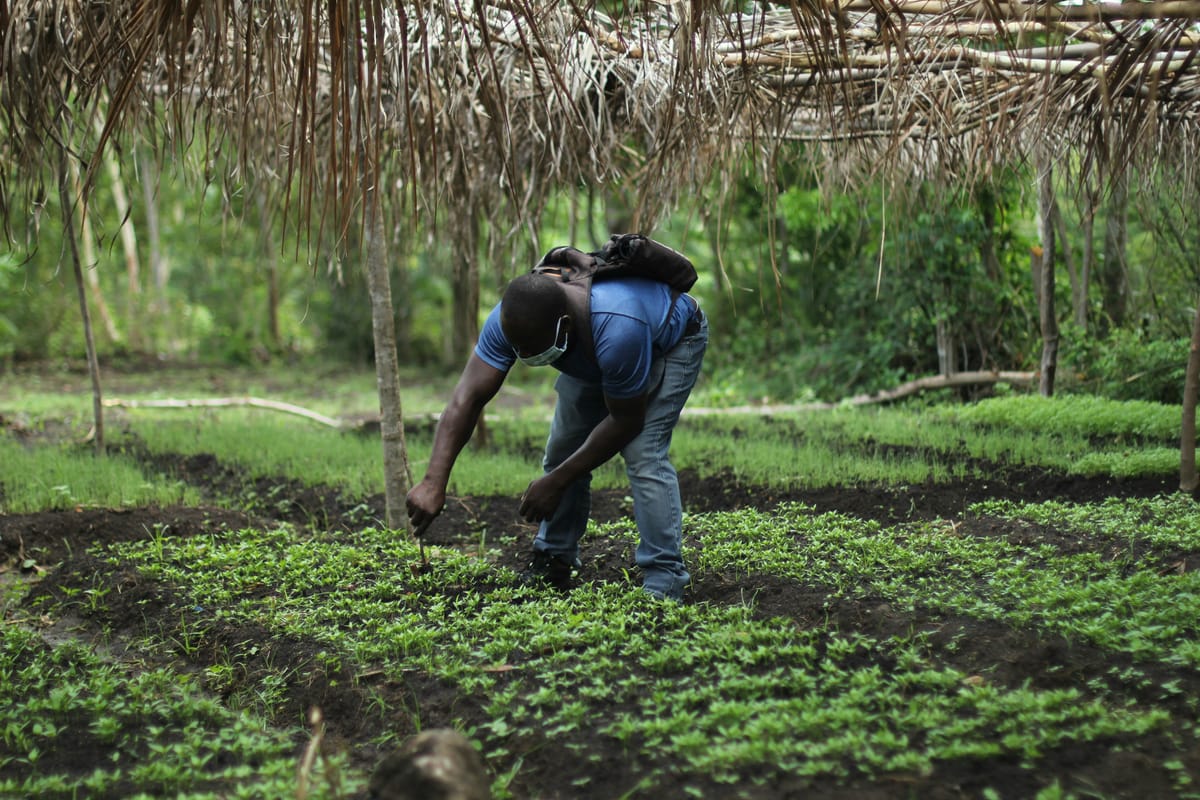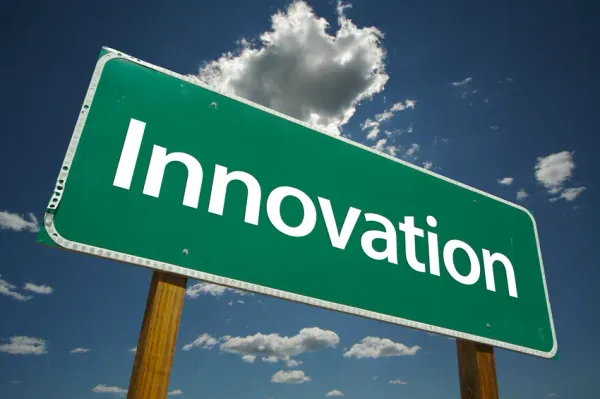The Agricultural Value Chain, Challenges and Digital Opportunities in Nigeria

Although highly underdeveloped, Nigeria's agricultural value chain is estimated to be worth $85 billion. Africa holds 60% of the world's uncultivated arable land, and 13% is in Nigeria, with 82 million hectares of arable land. So far, only 34 million hectares have been cultivated.
Once the backbone of Nigeria's economy, agriculture's contribution has significantly dwindled since the discovery of crude oil. From 1960 to 1969, the sector accounted for an average of 57.0% of GDP, generating 64.5% of export earnings. However, from 1970 to the late 2000s, its contribution steadily declined as Nigeria's focus shifted to petroleum exploration. Over the past five years, the sector has contributed an average of 23.5% to GDP and generated 5.1% of export earnings, highlighting the urgent need for revitalization.
The recent downturn in crude oil prices has exposed Nigeria's economy's vulnerability and underscored the urgent need for diversification. This has sparked crucial conversations around the role of Agriculture in economic stability, making it a prime time for strategic investments.
This article identifies the challenges and opportunities Nigeria's agriculture sector provides for sustainable economic development. This development requires massive investments to increase production and create value addition across the most profitable segments of the value chain.
The Agricultural Value Chain in Nigeria
Agricultural value chains encompass the flow of products, knowledge and information between smallholder farmers and consumers. They offer the opportunity to capture added value at each production, marketing and consumption stage. The World Bank defines the term “value chain’’ as the full range of value-adding activities required to bring a product or service through the different production phases, including procurement of raw materials and other inputs”.

There have been questions and discussions in public forums and summits amongst key stakeholders and development partners in the agriculture sector on how the government can support the development and coordination of value chains and the need for Nigeria to rethink its approach.
Different administrations have focused on agriculture as a means to diversify the economy and several policies have been designed in this regard. More recently, the current administration launched the Agriculture Promotion Policy (APP) to resolve food production shortages and improve output quality. In addition, the Economic Recovery and Growth Plan (ERGP) prioritise food security and aimed to achieve self-sufficiency in rice, heat and tomato paste, by 2017, 2018, and 2019/2020 respectively, which we fell short.
Despite these policy interventions, the agriculture sector is still largely underdeveloped, primarily because the focus is on production rather than enhancing value addition across the value chain.
In a significant mindset shift, the government’s focus should be on investments that incentivize greater productivity and the ability to capture a higher value. These include transport infrastructure; energy for processing, chilling, drying, or packaging commodities; research and extension services in new storage practices and processing and packaging technologies; and education and training in product marketing.
This will enhance productivity and have multiplier effects on the value chain segments.
Challenges in the value chain
Nigeria’s value chain is characterised by 80% of smallholder farmers and a few commercial processors plagued by inadequate inputs, obsolete technology, lack of knowledge/information about high value/growth products, limited exposure to high productivity practices, weak market linkages, inefficient supply chains with high levels of food wastage, an acute dependence on rainfall and poor financing to say the least. In order to create an income revolution in the agricultural sector, we need to capture the entire value chain right from research to the stage where farmers are able to realise money in their pockets.
Some of the key challenges in the upstream of the agriculture value chain are:
- Scarcity of Resources: Over the years, agricultural production in Nigeria has been impacted by the limited availability of inputs. Local farmers have lacked the required seedlings, fertilisers, and water for production activities. Also, securing land and property rights is time-consuming and expensive, which discourages agricultural activities.
- Scope to Improve Yield: Taking the case of mechanisation, its slow adoption in Nigeria has significantly reduced the quality of agricultural products. The mechanisation rate has been held back by limited access to modern agriculture equipment and the limited availability of skilled workers. Also, the low investment in irrigation systems, water pollution, and increasing deforestation have impacted the quality and availability of water for improved agricultural production.
Some of the key challenges in the downstream of the agriculture value chain are:
- Marketing and Trade: A study conducted in Kwara State found that the high cost of transportation, bad roads, and long distances from the farms to the market negatively impact the marketing of agricultural produce. Similarly, in most other states, farm-to-market challenges are poor road networks, inadequate market information to identify domestic and external opportunities and poor logistics infrastructure. From a trade perspective, limited understanding of key export markets (the US, UK and EU) and low quality of agricultural products have hindered international trade.
- Financial Constraints: Developing the agriculture sector requires long-term and affordable financing across the value chain segments. Over the years, the government has facilitated several financing interventions in the sector. However, the sustainability of the intervention schemes and accessibility by farmers have been major constraints to expanding credit growth available to the agriculture sector.
- Trends in Regulations: The regulators are expected to formulate and enforce regulations to maintain the quality of agriculture output across the agricultural value chain. The Federal Ministry of Agriculture and Rural Development (FMARD) is the umbrella body focused on ensuring sustainable access, availability and affordability of quality food. Other regulators include the Standard Organisation of Nigeria(SON), the National Agency for Food Drug Administration and Control (NAFDAC) and the Federal Produce Inspection Service (FPIS). The impact of regulatory activities in the agricultural value chain has been constrained by inadequate funding and limited manpower. This has limited their quality assurance and oversight functions.
Given the complexity of the Nigerian agricultural ecosystem, no single policy change or technology shift will move the country towards a sustainable, developed and profitable value chain.
Digital opportunities across the value chain
A large number of digital technologies need to be scaled up, some of which have already been done. The ever-increasing role of the private sector in this space has highlighted several digital opportunities that can be channelled towards providing innovative solutions to grow the agricultural sector and empower Nigerian farmers.
An example is Cellulant’s strides in improving the agriculture value chain with its payment platform, Tingg, and Agrikore, an innovative platform built on blockchain technology. They claim to have pioneered Agritech innovation that powers the livelihoods of more than 17 million farmers and allows all players to connect to solutions that transform how they do business.”
The sector is now looking forward to using many digital technologies at the pre-production stage, in production, and in post-production.
The following are some of the types of digital agricultural solutions that can create value and boost farmer income:
- Smart Farming: With advancements in technology, digitisation and analytics will play a critical role in building Nigeria’s farms in the future. Potential disruptions that could unlock value through the food chain are (a) Precision farming, including field data, weather patterns to drive agronomic advice to farmers, and yield forecasting. (b) IoT-based advanced analytics in manufacturing plants to improve availability, throughput, and save costs.
- Digital Procurement: Roll out of digital technologies in the agricultural last mile that enables a range of digital systems and processes to transition from paper to digital. Online commodity auctions are an example of such initiatives and have the potential to impact the livelihood of millions around the world. Governments and platform providers can facilitate online direct selling by growers through initiatives that increase the growers' bargaining power and the buyer's confidence to procure from lesser-known growers directly.
- Digital Finance: It is the lack of financial access that makes most farmers to under-produce. Access to financial products and services via digital channels can help strengthen the ecosystem. Most smallholder farmers are financially excluded, digital finance remains the best way to facilitate their inclusion. Thus, farmers should be encouraged, maybe as part of the entire financial package, to acquire mobile phones that enable them to access financial services digitally. In addition, since smallholder farmers are usually in rural villages that have high financial exclusion rates, digital financial services that involve the use of agent networks is critical to their adoption.
- Information Services / Call Centres: Mobile-enabled dissemination of information to farmers, such as agronomic advice, market prices and certification standards. Setting up multi-lingual call centres in hot spots nationwide, with experts on hand to answer farmer queries related to agronomic practices, pest outbreaks, market prices, weather forecasts, and government schemes. An open software with sophisticated MIS in the form of an inbuilt knowledge management system to capture the entire range of advisory services and provide full backend data support to our knowledge workers can suffice.
Nigeria’s Digital Ecosystem in Agriculture
In recent years, Nigeria has seen a proliferation of agritech companies aiming to address the challenges faced by smallholder farmers and improve their livelihoods through better access to inputs, credit, assets, and markets. Some of the companies offering these innovative digital solutions include Farmcrowdy, Thrive Agric, AgroMall, Hello Tractor, and Crop2Cash, among others.
Farmcrowdy is a digital agricultural platform that connects farm sponsors with farmers. Farmers can use the sponsors’ funds to complete a full farming cycle, and sponsors can track farmers through periodic updates.
Thrive Agric is a digital crowdfunding platform that provides farmers with the finance they need to grow their businesses. The platform also allows the general public to invest in smallholder agriculture.
Crop2Cash is a platform that improves smallholder farmers’ access to formal financial services. Through its partnership with First City Monument Bank, Crop2Cash provides farmers a digital payment solution.
FINT is an impact investment platform that facilitates investment in Agritech loans, empowering local farmers while also earning attractive returns for investors.
AgroMall supports smallholder farmers using digital tools to provide effective agronomic advisory, extension services, management and engagements in agricultural value chains.
Conclusion
To successfully harness the opportunities that will drive growth in the agricultural sector in Nigeria, the existing institutional arrangement needs to be rethought. Agriculture needs to be practised as a business rather than a hobby. Nigeria needs to shift from public sector to private sector-led agricultural transformation by investing more in technology upgrades across the value chain than in R&D.
In addition, all stakeholders must start talking with one another. Agricultural Insurance Companies, Commercial Banks, Microfinance Banks, Agricultural Development Banks, FinTech Companies, Agricultural Companies (Tech and Non-Tech), Farmer’s Cooperatives, Aggregators and Off-takers need to share ideas, which can be achieved through learning by doing, using and interacting, supported by strong and effective extension systems.
Endnotes:
- Agriculture for Impact, Growing Opportunities for Africa’s Development: https://ag4impact.org/sid/socio-economic-intensification/building-social-capital/agricultural-value-chains/
- PwC Report — Transforming Nigeria’s Agric Value Chain: https://www.pwc.com/ng/en/publications/transforming-nigeria-s-agricultural-value-chain.html
- https://techcabal.com/2019/12/19/cellulant-affirms-commitment-to-fixing-agric-value-chain-with-technology/




